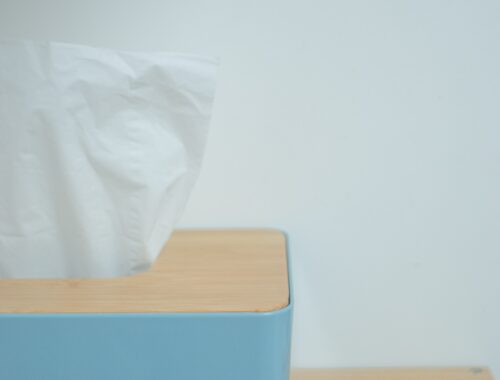What are the Health Benefits of Indoor Plants?
This blog uses affiliate links and banners. If you purchase something from them I will receive a commission at no cost to you. I am part of the Amazon Associates program. As such, I receive a commission on qualifying products.
The first question that you might be asking yourself is: why should I have plants in my home? There are many reasons. Plants can help filter out contaminants and toxins from the air, they create a more welcoming environment, and they just look nice. The benefits of indoor plants go beyond what you see on the surface. In this post, we will explore some of those benefits, as well as different types of potted plants to buy for your home!
Allergy Relief
It may be surprising but plants can help with allergy relief inside the home. That’s because plants absorb dust particles that are circulating in the air to improve the indoor environment. And they also offer great insulation from noise pollution, which can be a factor for people with allergies to pollen blowing through the air on windy days.
Just avoid any plants that produce pollen as these could add to the allergens in the air rather than reduce them.
Check out this post about allergies
Make us happier
Plants can not only brighten up your space, but they may also make you feel better. Employees who work in offices with plants tend to be more satisfied with their jobs, worry less, and take fewer sick days. Flowers in particular are a wonderful pick-me-up. So add blooms to your desks, such as a lipstick plant or even a bouquet of fresh flowers to get that instant mood lift.
Spider Plants for Moisture
The Spider Plant is an example of a plant that helps improve the moisture levels in a room. This is because the plant absorbs humidity through its leaves, which can later be released into the air.
Indoor humidity levels can decrease as a result of furnaces and air conditioners. Indoor humidity levels are naturally lower in the winter, which makes you more prone to catching a cold or the flu. Houseplants provide moisture to the air. Spider plants were discovered in one study to raise room relative humidity from 20% to 30%.
Air Purifiers
Many types of plants are natural air purifiers. They pull toxins from the air and allow the air to be less polluted, improve oxygen levels and potentially stop substances that can make you sick. According to NASA, the following plants are some of the best air purifiers for any indoor space:
Snake Plant or Mother-in-Law’s Tongue (Sansevieria trifasciata) can remove formaldehyde and xylene from your home. It also releases oxygen at night so you get a double benefit when this plant is in your bedroom!
- Aloe Vera ( Aloe barbadensis) removes benzene and trichloroethylene from your home.
- Peace Lily (Spathiphyllum wallisii) is a great option for removing mold spores, ammonia, xylene, toluene, and formaldehyde from the air.
- Weeping Fig or Ficus Alii (Ficus benjamin) removes formaldehyde, benzene, and trichloroethylene.
- English Ivy or Hedera Helix pulls ammonia, benzene, xylene, and toluene from the air.
- Gerbera Daisy can remove acetone which is found in nail polish remover! It also absorbs carbon monoxide and formaldehyde.
Get three great air purifying plants from Amazon by clicking this link.
Herbs for Better Digestion
Herbs are a range of plants that are commonly used in recipes and range from basil to oregano to parsley. Many herbs have been shown to improve digestion as well as helping a meal taste better. Good digestion aid herbs include mint, basil, and ginger.
Herbs are also easy to grow in places like the kitchen windowsill. This means even if you don’t have much space for larger plants, you can still get the basic benefits of herbs and then include them in your recipes. Just choose once you know you will use it when cooking.
Relaxing Lavender
Lavender is a herb but it is best known for its smell rather than eating it (although you can). Lavender has been shown to help with relaxation, anxiety, and depression.
Placing lavender in your bedroom can help you sleep better at night, while placing it near the front door may promote a good first impression when guests come over! Just avoid where children or pets play as they could be harmed by the oil of the plants.
Aloe for First Aid
Aloe vera is known for its ability to cool a sunburn, help with kitchen burns and act as a disinfectant. Unfortunately, you can’t eat it as a food but there are many other uses.
Give your skin an aloe vera boost by applying the gel straight onto sunburn to cool down quickly! You may also want to place some on hand before cooking if you burn yourself often. Aloe is known for its anti-inflammatory properties which means it can help reduce swelling.
Restful Sleep
Some plants are a little strong to place in the bedroom but others are perfect and their scents can even help you get a restful night’s sleep. Some of the best plants to help sleep quality include lavender, jasmine, and lemon balm.
Jasmine can help with relaxation but it is also a strong scent which means you may fall asleep faster! Lavender has been shown to reduce anxiety levels in one study so why not try both? Lemon Balm leaves are believed to have calming properties as well as 200 active compounds that can help sleep quality.
Stress Relief
Another benefit from indoor plants can be to help with stress relief. Certain plants, such as Chlorophytum Comosum, or spider plants can help reduce stress and improve mood.
Spider plants were discovered in one study to raise room relative humidity from 20% to 30%. Spider plants also release oxygen at night so you get a double benefit when this plant is in your bedroom!
Lemon Balm (Melissa Officinalis) has a calming, anti-anxiety effect that can be felt after just 15 minutes of being around the plant.
Sage (Salvia Officinalis) is known to have memory-boosting properties and help with focus so why not try it as an alternative for your morning coffee before work! It also helps reduce stress levels which means you may feel more up for the day ahead.
Lavender (Lavandula Angustifolia) is known for its calming and relaxing properties, which help reduce stress and anxiety! It also reduces blood pressure so if you have high levels of anxiety or stress there’s no reason why this plant won’t help you while improving your mood at the same time.
check out this post on relieving stress
Sharper Focus
A surprising potential benefit from indoor plants is that they can help sharpen your focus and ensure you get more done. There are many plants that have been shown to improve focus but the top three include Rosemary, Lemon Balm, and Ginko Biloba.
Rosemary has a calming effect that helps reduce stress levels while sharpening your mind at the same time! This makes it perfect for studying or working into late hours with full concentration. Another plant that can help with focus is Lemon Balm which has been shown to improve memory in young adults.
Ginkgo Biloba was found in one study of 200 students to increase attention levels by 20%! It also helps reduce stress, anxiety, and depression while balancing blood sugar levels so you feel more focused throughout the day.
Better Mental and Emotional Health
Generally, having plants in your home can improve mental and emotional health and offer a real psychological benefit. They can provide an activity to keep you busy or something to get you motivated and their natural abilities can help with anything from sleeping better to take the heat from a kitchen burn.
Stay safe everyone



